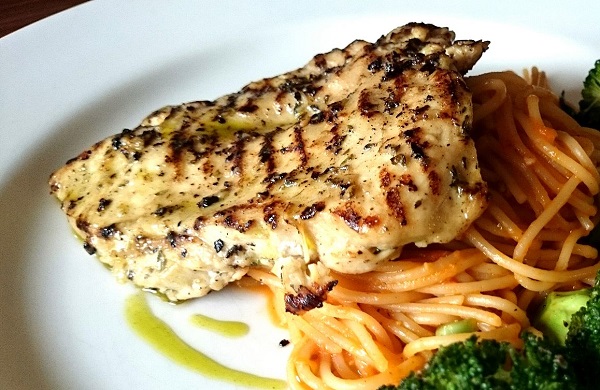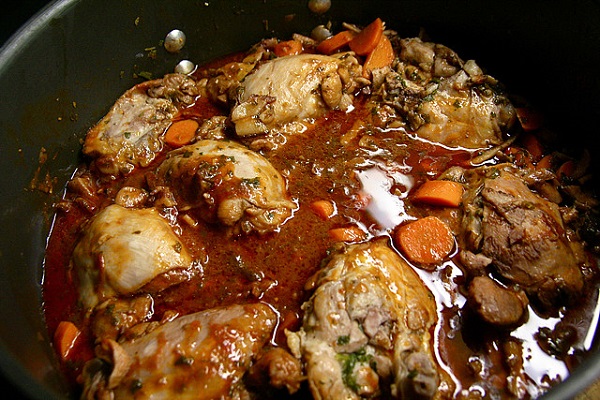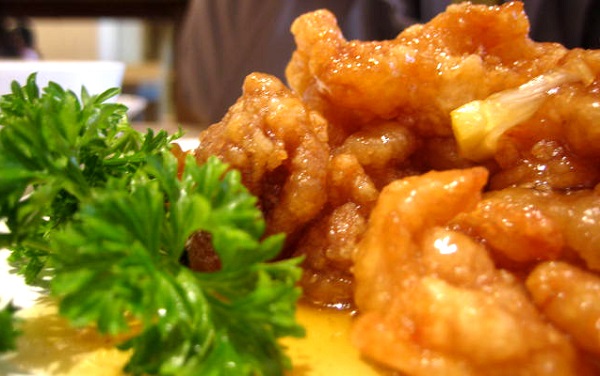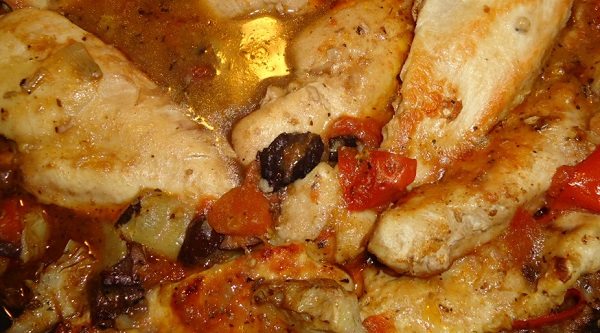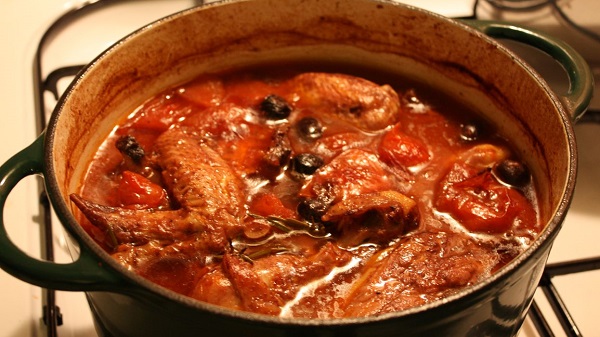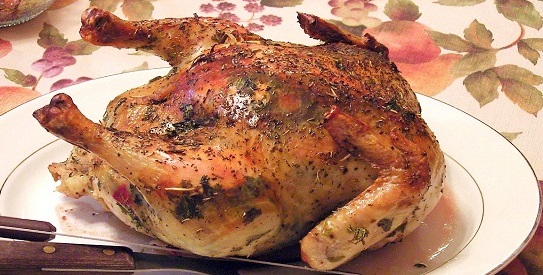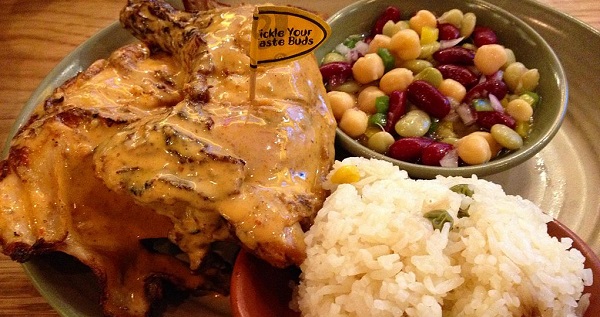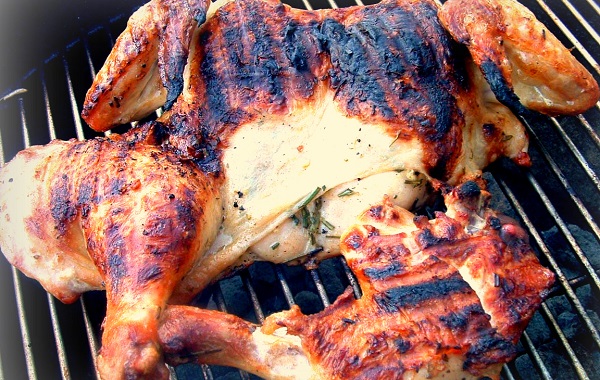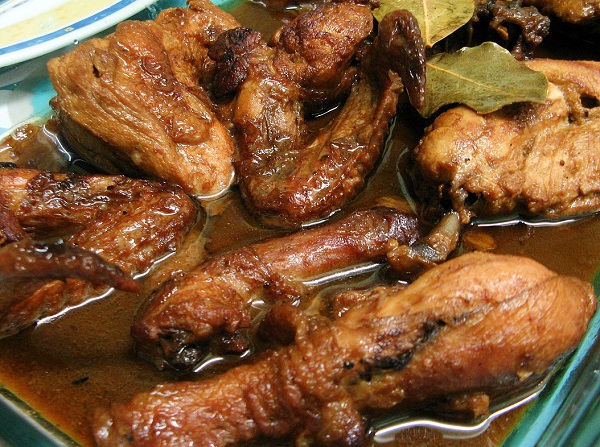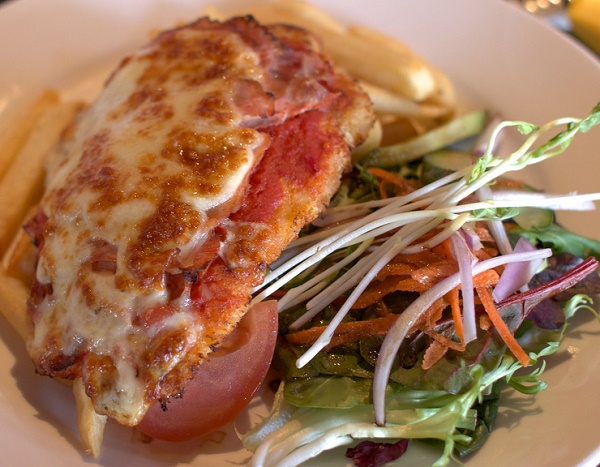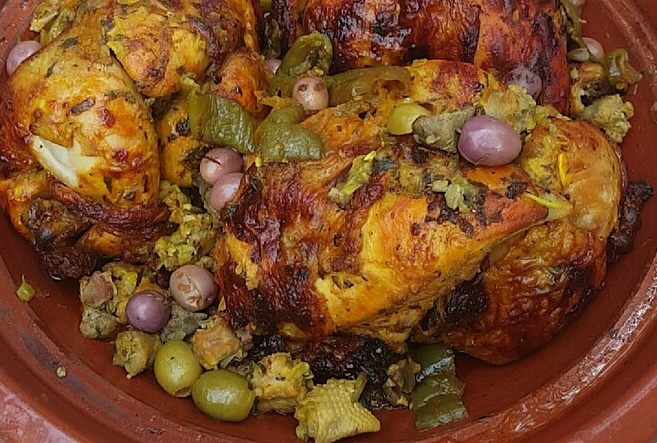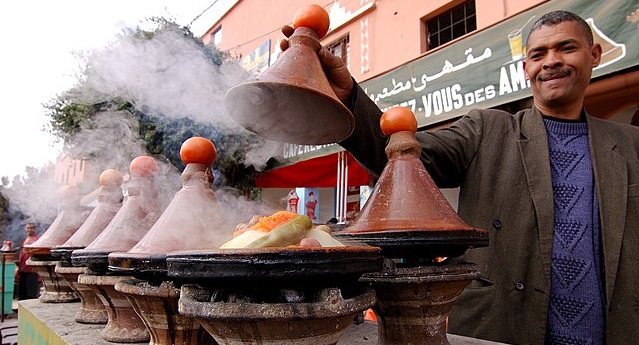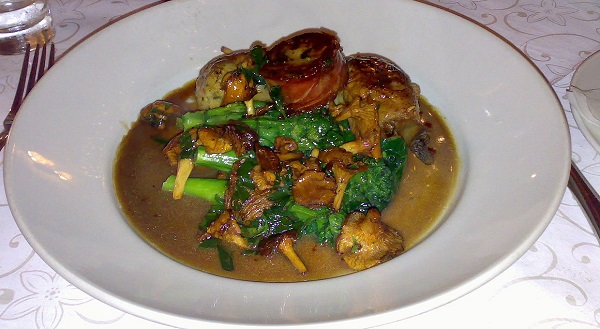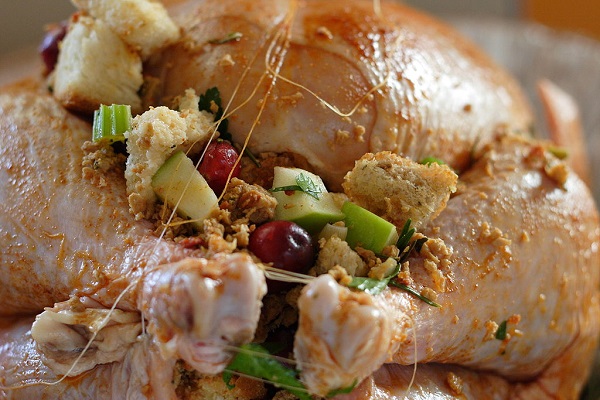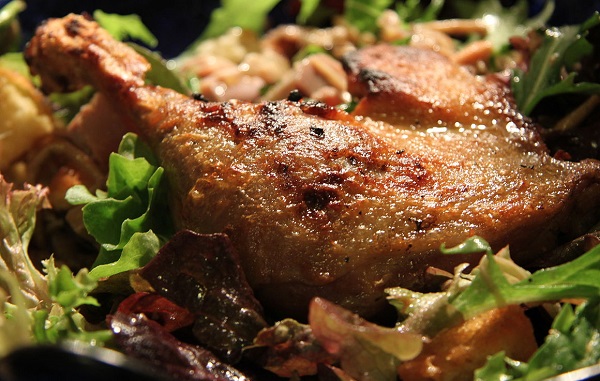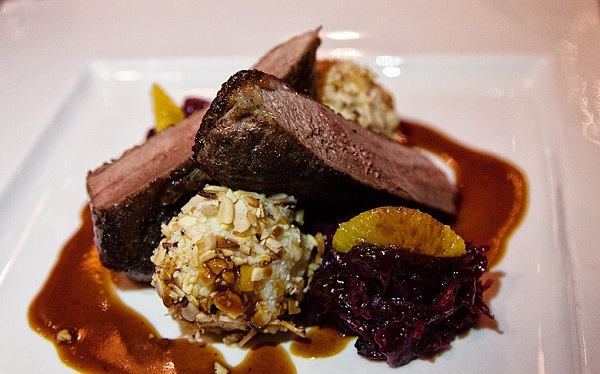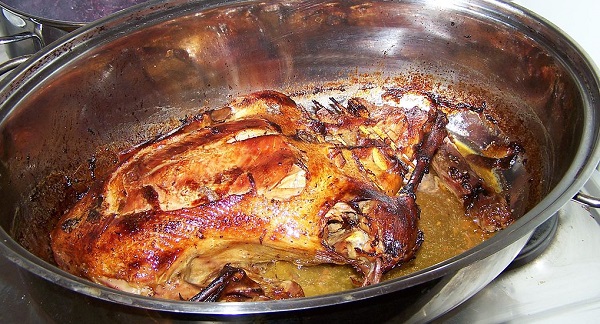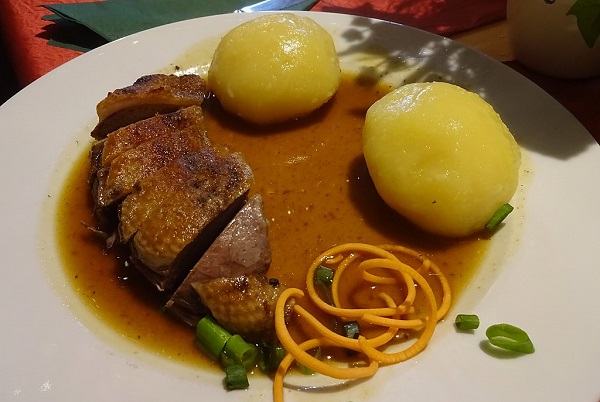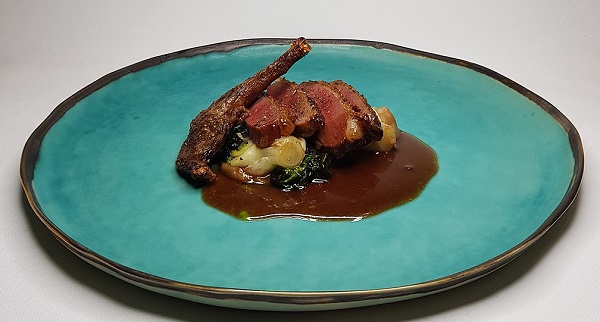Grilled Chicken tastes sweet, caramelized skin, and spices. The wine choice depends on the marinade and sauce. Genereally grilled Chicken pairs best with full bodied whites.
Oaked Chardonnay has enough body and richness to complement the depth of flavors, while also offering acidity to balance the dish. Go for a creamy, full bodied, white Burgundy.
Viognier, with its aromatic profile and fuller body, also pairs well with roasted chicken, enhancing the flavors without overpowering the dish.
Don't forget: Champagne and Chicken Skin is a match in heaven.
Excellent Pairings
Oaked ChardonnayViognier
Champagne
Wine Pairing Poultry
Pairing wine and food can enhance both the flavors of the food and the flavors of the wine.
Below are some excellent wine pairings for different types of poultry.
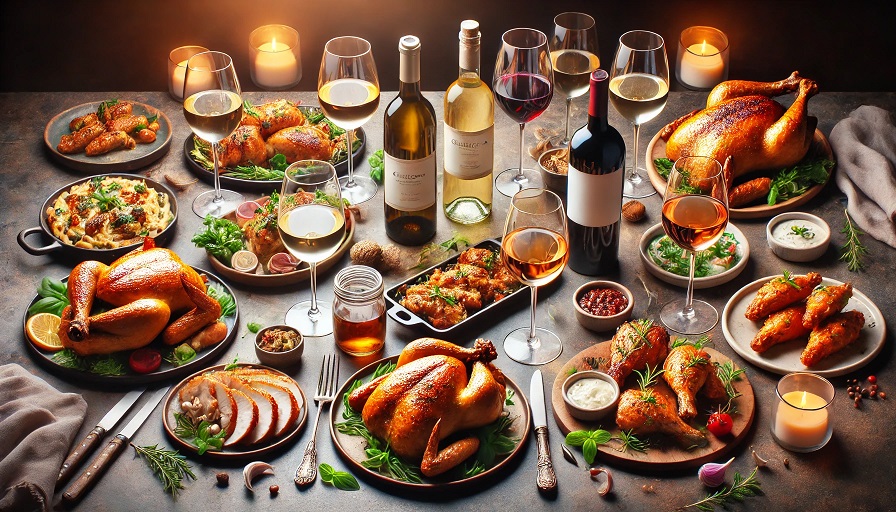
Wine Pairing Coq au Vin
For Coq au Vin you shold go for a light or medium bodied red with good acitity.
Red Burgundy is the classical choice (If you want to cook with the best wine you can afford and drink the same).
Excellent Pairings
BeaujolaisPinor Noir
Chianti
Merlot
Côtes du Rhône
Wine Pairing
Pollo alla Cacciatora
(Chicken Cacciatore)
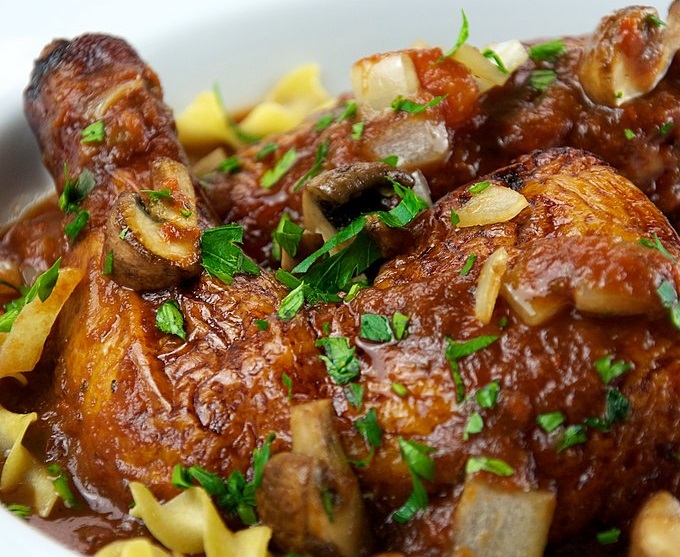
Excellent Pairings
ChiantiBarbera
Lambrusco
Avoid Tannic Reds and Oaky Whites.
Tomato-based chicken dishes, like chicken cacciatore, have acidity and savory flavors from the tomatoes. The tomato sauce calls for more acidity. Your chicken dish will dance in your mouth together a medium-light, fruity red.
Wines like Chianti, made from Sangiovese grapes, have bright acidity that mirrors the tomatoes and complements the dish.
Barbera, with its high acidity and low tannins, also pairs well with tomato-based chicken dishes, ensuring a balanced and refreshing pairing.
In the summer we recommend a cold Lambrusco or a Sparkling Rosé.
Wine Pairing
Fried Chicken
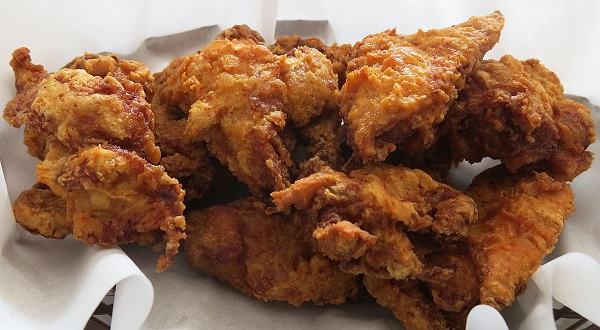
Excellent Pairings
Champagne. Expansive but worth itCremant. Champagne on a budget
Metodo Classico. Italian Champagne
Prosecco. Affordable luxury
Cava. Spanish Champagne on a budget
Sekt. German Champagne on a budget
Fatty and crispy fried food loves Sparkling Wines.
Description
Fried chicken, with its crispy, fatty texture, pairs beautifully with the high acidity and effervescence of sparkling wine, particularly Champagne. The bubbles help cleanse the palate between bites, while the acidity cuts through the richness of the fried coating.
The batter around the chicken, has yeast flavors complementary to the yeast flavors in Champagne.
Salt reduces acidity so choosing a high acid dry wine is important.
Chicken Curry
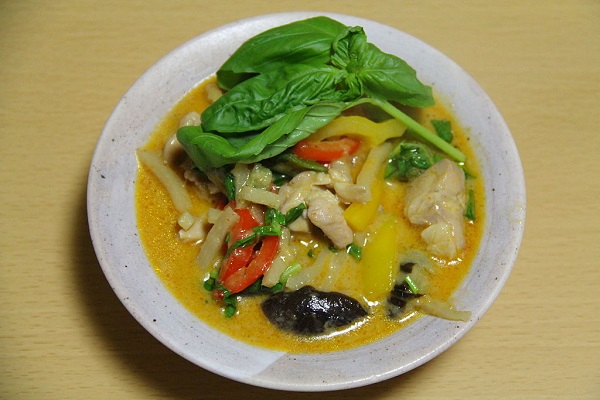
Main Ingredients
Chicken. Chili Pepper. Onions. Ginger. Garlic. Spices. Cumin. Coriander.
Wine Pairing
Chicken Curry
Spicy chicken dishes, such as those with chili or curry, benefit from wines with a touch of sweetness and a good acidity. To balance hot spices of, you need Sweetness.
The creaminess and perfume of Alsatian Pinot Gris completes the picture.
Riesling, particularly off-dry or slightly sweet versions, works well because it tempers the heat of the spice while maintaining balance.
Gewürztraminer, with its aromatic and slightly sweet profile, also complements spicy flavors, making the dish feel less intense.
Bubbles can also work.
Excellent Pairings
Riesling SpätleseGewürztraminer
Off-dry Pinot Gris
Butter Chicken
(Murgh Makhani)
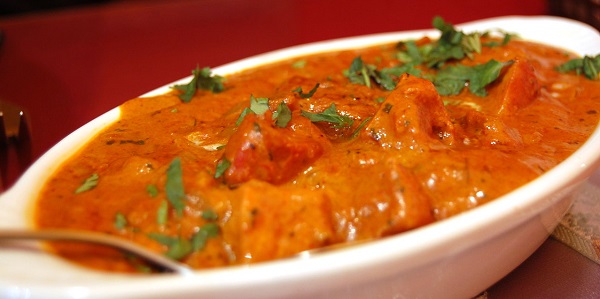
Murgh Makhani is a spicy Indian dish made with a tomato sauce spiced with Coriander, Cumin, Turmeric, Ginger, Mustard, Cinnamon, Cardamon, Cayenne Pepper, Mace, Chilies, Fennel Seeds, Nutmeg, Cloves and Black Pepper.
Wine Pairing Butter Chicken
Creamy sauces, such as those made with butter or cream, benefit from a wine with good acidity to cut through the richness.
White Burgundy (Chardonnay), which offers bright acidity along with a subtle richness, complements creamy chicken dishes perfectly.
Pinot Gris, with its slightly richer texture and acidity, also pairs well, offering a balance between freshness and body.
Excellent Pairings
ChardonnaySoave
Pinot Gris
Wine Pairing
Lemon Chicken
Chicken dishes that with fresh herbs and lemon have bright, zesty flavors. Lemon Chicken pairs best with a fresh and fruity white wine with good acidity.
Sauvignon Blanc, with its high acidity and herbaceous notes, is a natural pairing, enhancing the freshness of the dish without overwhelming it.
Vermentino, an Italian white wine, also offers bright acidity with a touch of salinity, making it an excellent match for herb-infused chicken.
Chablis (unoaked Chardonnay) is lemony and matches both the flavor and acidity.
Oaked Chardonnay does not work because it has gone through a process called Malolactic Fermentation, where the citrusy flavors transform into buttery ones.
Citrusy Light Rosé are a good match but stay away from red wines, they overpower the dish.
Excellent Pairings
Sauvignon BlancVermentino
Grüner Veltliner
Sparkling Wines
Metodo ClassicoProsecco
Cava
Sekt
(Avoid Reds and Oaky Whites)
